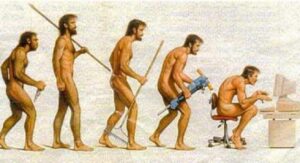Why Can’t I Write Today?!
You’re sitting there, steaming cup of tea next to you, several hours blocked out for writing and…no words are coming. Worse, you can’t even seem to settle enough to get to any words.
What’s going on?
There is an obvious check-list to look at, the one involving emotional and physical issues: are you going through a very stressful time such as the death of someone close to you or a divorce or is someone you love seriously ill? It could be something less dire, like you’re afraid emotionally to go where you need to go in your story.
But there are many more times when none of these things are the case and we still feel like we can’t quite grab the writing gods by the tail. Here is a list of things we might not notice, but which can actually have a serious effect on our ability to sit and concentrate:
Having to go to the bathroom: Yes, this sounds funny, but I have noticed that if I have to pee, I have about a third the patience I usually have. I find myself trying to hurry through first-draft writing or letting things pass in editing I would ordinarily stop and work on because there just seems to be some sort of hurry to get somewhere… Why? My body is sending a constant “Hey—hurry up and get to the bathroom” signal. In my less-body-conscious, “get writing done” state, this translates as “I need to be getting through this page as quickly as possible.” You’d be amazed how fast focus returns after a bathroom visit. (And don’t get me started on sitting there being too hot or too cold…put on a sweater! Or take one off!)
Sitting too long in one position: Aches and pains sneak up on us. The longer we sit in one position, the more our bodies start to whisper, then grumble, then shout. Don’t wait for the shout. Get up every so often and swing your arms and walk around the room. Recent research in creativity shows that taking a short break every 20 minutes to let your mind wander around (not on the internet) and let your body move actually improves retention of information and allows the mind to make connections it otherwise wouldn’t make—like how the vase you spontaneously added in scene 4 now plays a pivotal symbolic role in scene 16 that you hadn’t even considered. Set your timer for 20 minutes and let your brain go on walkabout.

But using a jackhammer instead of standing up is fine. In fact, it’s encouraged.
Hunger: Of course we know when we’re hungry. But more important than that is what our bodies do the longer we go without eating. We only have a limited amount of energy before we have to refuel. As we run out, the body starts sending that energy to higher and higher priority systems. No matter how it feels to us, writing a novel is not high on the survival scale. Our brains start to drift, we lose focus on our themes and character arcs and plot points and soon we’re writing that crap we know we’re going to have to re-write extensively later. Better to stop and eat even just a banana than push ourselves to some word or time goal at the expense of our story.
What You Eat: But wait! Don’t just eat anything when you’re hungry. This is a huge topic, but believe me when I say everything you eat affects your brain. What you eat before you try and sit down to write may affect you more than anything else on this list short of water (addressed soon!). Instead of trying to discuss all the things that negatively affect your ability to concentrate (short short list: simple carbohydrates like sugar, foods made with white flour, candy, soda, packaged cereals, etc. or foods with MSG, nitrites, nitrates, or other neurotoxic ingredients), here are some great brain foods you can eat that will support your writing. Look for complex carbohydrates that take longer to digest and don’t spike blood sugar the way the simple carbohydrates do: Fish, cottage cheese, vegetables, beans, chicken (organic), potatoes, yams, whole grains (brown rice, oatmeal, quinoa, and millet to name a few), dried apricots, bananas, plain yogurt, carrots. Have a meal (not a huge one) based on complex carbs and then hit the desk!
To-Do Items: writing writing writing writing dang it I have to get printer ink pause…refocus…writing writing writing what was it I had to get? Think think think think give up refocus refocus refocus kind of writing kind of writing Printer ink! Yes! And I have to get a new car no writing happening
I don’t know what your to-do lists look like, but if they’re floating around in your head and you’re trying to remember them over and over, they’re taking up valuable writing-connection space. Albert Einstein said he didn’t memorize his home phone number. One reason was because it was easy to look up and he didn’t want to waste brain space he could be using thinking about what he needed to be thinking about. It’s the same for us—you need to be thinking about your book, not re-remembering the things you need to do later.
Have a piece of paper next to you and when you think of something, write it down and get it out of your head, where all it’s doing is poking your story like that annoying kid next to you in the school assembly in fifth grade who thought he was soooo funny, and he wanted to make sure you heard every non-funny thing he whispered, and…writes on notepad next to article…
Noise: Obvious, right? Sure, if the noise is happening right when you sit down. But what about if you’re really deep in your story and then the noise starts? You may only be aware of it the way you would a gnat buzzing around your head, but that gnat is going to derail your story if you keep giving it even a part of your attention.
Try adding white noise—a fan or one of those cool radios that play forest scenes or water or something if you’re working at home or, if you’re in a café, break out the headphones and pick a song to put on repeat. The repeat part is key—the more you’ve heard the song, the more your brain relegates it to the background, where it masks that annoying business guy sitting across from you having a conference call in a café. Really? What is he thinking?

NO. BAD GUY. STOP IT.
Water: Much like having to go to the bathroom and being hungry, the body also has a signal for when it needs water. But this signal can be much more dire. It is no exaggeration to say that the body runs on water. The neurochemicals in the brain are transported on water. The electrical connections in the muscles, including the heart, depend on water. All your hormones are transported in water. You can’t flush toxins without water. Blood pressure is dependent on having enough water to transport red and white blood cells and platelets. And that’s a very short list of how much the body depends on water.
So when we’re thirsty, our body sends us a very powerful message that all is not well. But not many people know what this message feels like. Yes, we will get a headache, but that’s like saying “Don’t worry about the horses getting out of the barn until they’re actually running by you in the driveway.” There are many earlier signals—one I notice is a strange tightness in my throat. In fact, if you find your brain wandering when you really are trying to concentrate, try drinking water first.
It will take about 20-30 minutes for your body to absorb it and send it where it needs to go, so you might actually want to drink water before you even sit down to write, and keep drinking it regularly throughout your time. Water, more than anything else, is the key to a full-functioning brain.
The next time you find yourself struggling at the keyboard, take a quick look through this list and try a few of the things on it. Hopefully, you’ll be back up and running in no time!
